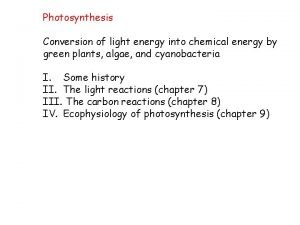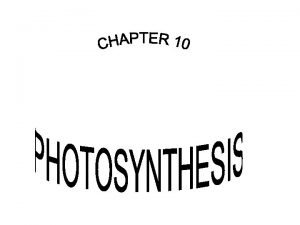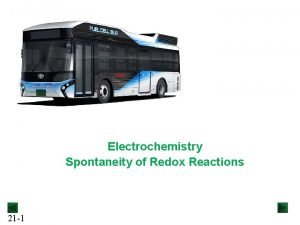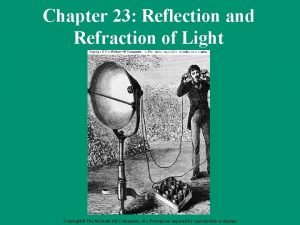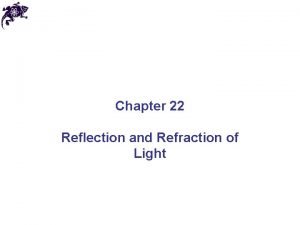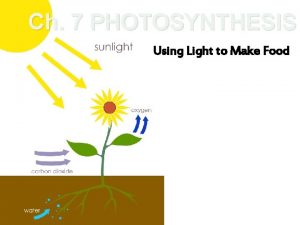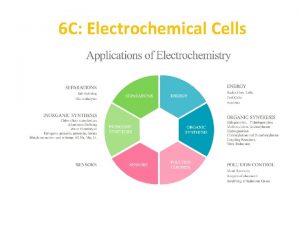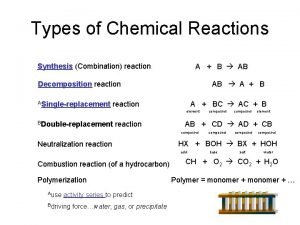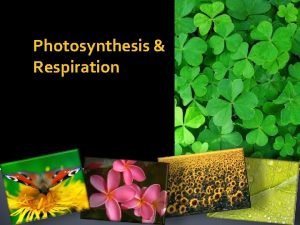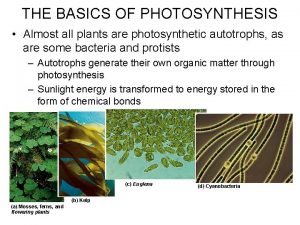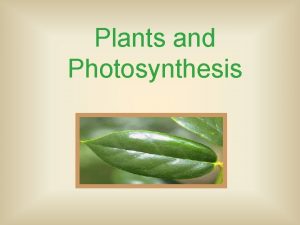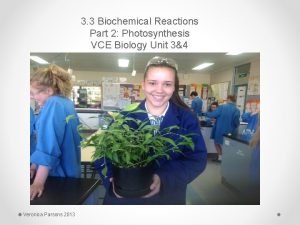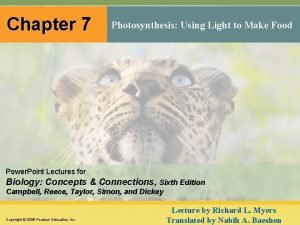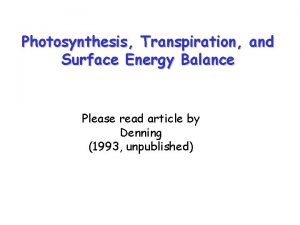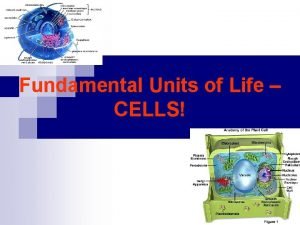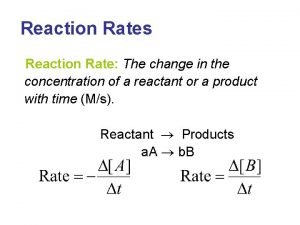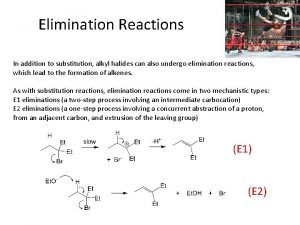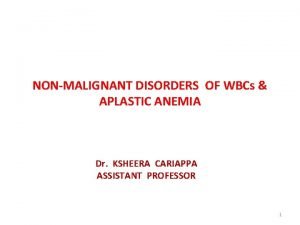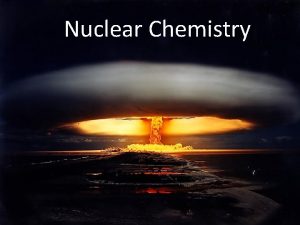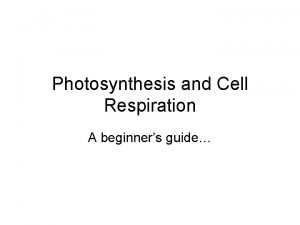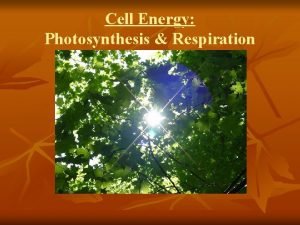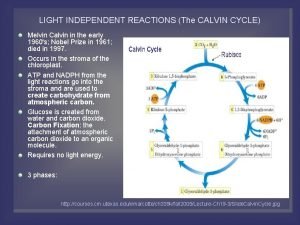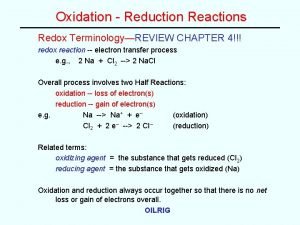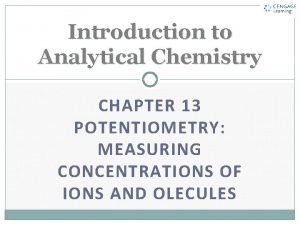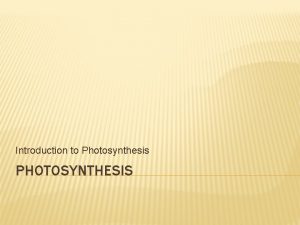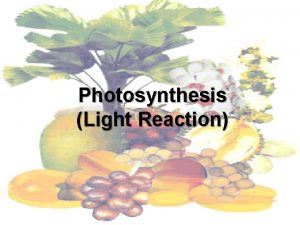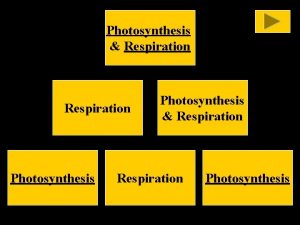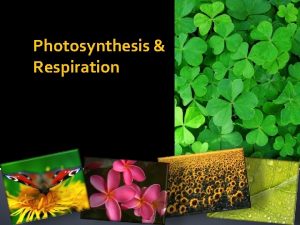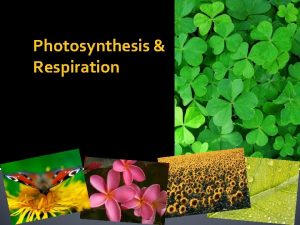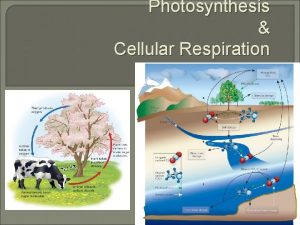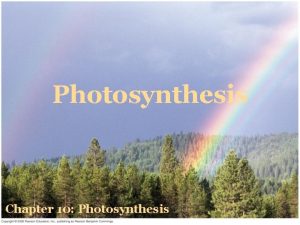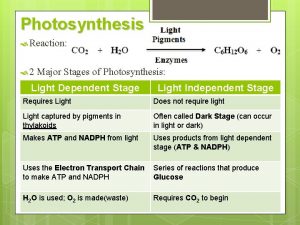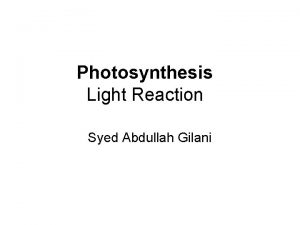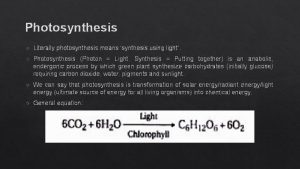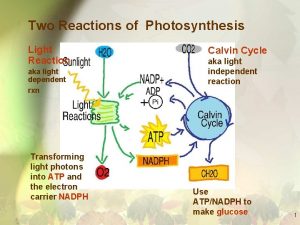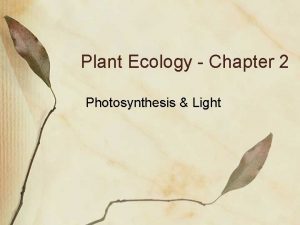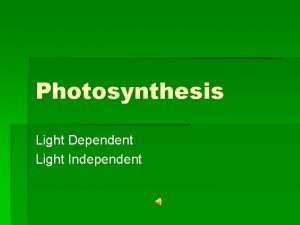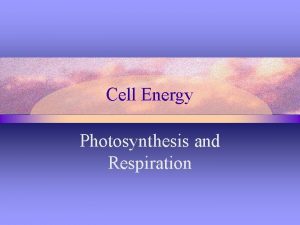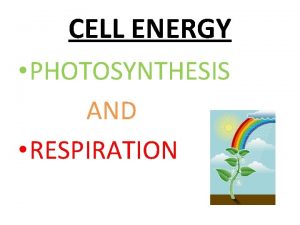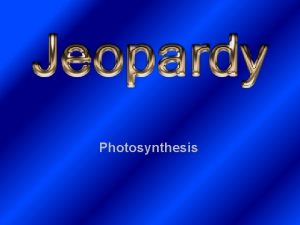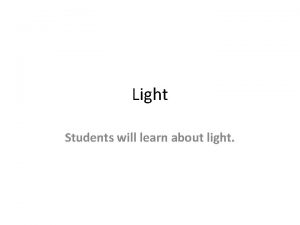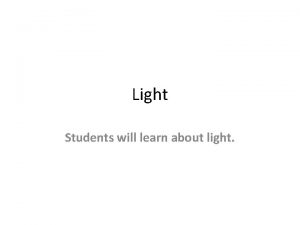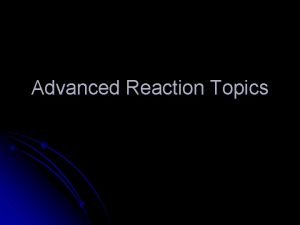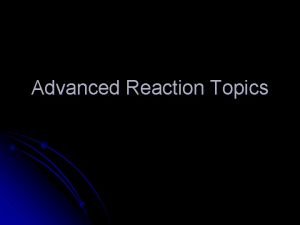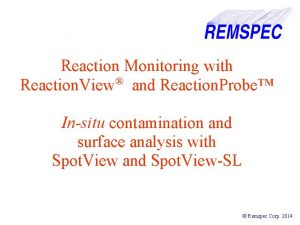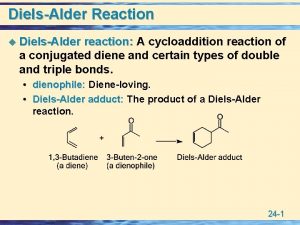Photosynthesis Photosynthesis Introduction 2 Light reaction 1 Cell

























- Slides: 25

Photosynthesis

Photosynthesis Introduction 2. Light reaction 1.

Cell Energy: Energy for living things comes from food. Originally, the energy in food comes from the sun.

Organisms that CANNOT use the sun’s energy to make food—heterotrophs Ex: animals and most microorganisms

• Organisms that use light energy from the sun to produce food—autotrophs (auto = self) Ex: plants and some microorganisms (some bacteria and protists)

Photosynthetic Organisms are Producers

Photosynthesis is the process by which the energy of sunlight is converted into the energy of glucose

Photosynthesis occurs on plant leaves

Leaf Anatomy Protects the leaf Where photosynthesis takes place Lets CO 2 in and O 2 out

More specifically, photosynthesis occurs in the chloroplasts of leaf granum

Chloroplast Structure:

http: //www. russianflora. com/store/images/product/custom_green_plant_35. jpg The main energy absorbing molecule in chloroplasts is CHLOROPHYLL _______ CAROTENOIDS _______ are plant pigments too. (These look yellow, orange, and red). As chlorophyll dies in the fall, the green color fades and is replaced by http: //www. rnzih. org. nz/images/gardenimages/carrots_d. jpg

http: //www. russianflora. com/store/images/product/custom_green_plant_35. jpg Carotenoids are plant pigments too. These look yellow, orange, and red. As chlorophyll dies in the fall, the green color fades and is replaced by carotenoids http: //www. rnzih. org. nz/images/gardenimages/carrots_d. jpg

Chlorophyll absorbs mostly red and blue wavelengths of light Red and blue absorbed Green is reflected

Photosynthesis Overview

Two Main Stages of Photosynthesis Light. Dependent Reactions Light-Independent Reactions (Calvin Cycle)

Part 1: Light-Dependent Reaction Occurs in thylakoids/grana Sun’s energy is absorbed & changed into chemical energy in ATP & NADPH

5 steps of light rxn 1. Light strikes thylakoid & hits chlorophyll causing electrons become excited.

5 steps of light rxn 2. Electrons jump from chlorophyll to chlorophyll through thylakoid membrane (electron transport chain). NADP+ picks up high energy e- & H+ to become NADPH.


3. H 2 O is split by light (photolysis)– electrons are given back to chlorophyll, H+ collects, & O 2 is released (waste product you breathe)

4. H+ builds up inside thylakoid. 5. H+ pass through transport protein (ATP synthase) which adds P to ADP forming ATP.

Talk to a Neighbor… Using the following diagram, walk your partner through the 5 steps of the lightdependent reactions

At the end of the Light-Dependent Reactions…

Summary of Light Rxn Video clip Using light energy ADP NADP+ H 2 O changed into ATP NADPH H+ & O 2
 Chemical form of energy
Chemical form of energy Photosynthesis reaction
Photosynthesis reaction Cathode and anode half reactions
Cathode and anode half reactions Light light light chapter 23
Light light light chapter 23 Into the light chapter 22
Into the light chapter 22 Light light light chapter 22
Light light light chapter 22 Synthesis reaction types
Synthesis reaction types Using light to make food
Using light to make food Is photosynthesis a redox reaction
Is photosynthesis a redox reaction Synthesis decomposition
Synthesis decomposition What is the chemical equation for photosynthesis
What is the chemical equation for photosynthesis Inputs of light reactions in photosynthesis
Inputs of light reactions in photosynthesis Autotroph
Autotroph How to measure photosynthesis
How to measure photosynthesis The process of photosynthesis
The process of photosynthesis Structure of chlorophyll
Structure of chlorophyll Photosynthesis transforms light energy into chemical energy
Photosynthesis transforms light energy into chemical energy Rate of reaction
Rate of reaction Addition reaction and substitution reaction
Addition reaction and substitution reaction Leukoerythroblastic reaction vs leukemoid reaction
Leukoerythroblastic reaction vs leukemoid reaction Activity formula
Activity formula In which part of the cell does photosynthesis take place
In which part of the cell does photosynthesis take place Chapter 6 cell energy photosynthesis and respiration
Chapter 6 cell energy photosynthesis and respiration Light independent reaction
Light independent reaction Reduction and oxidation
Reduction and oxidation Calomel electrode
Calomel electrode
